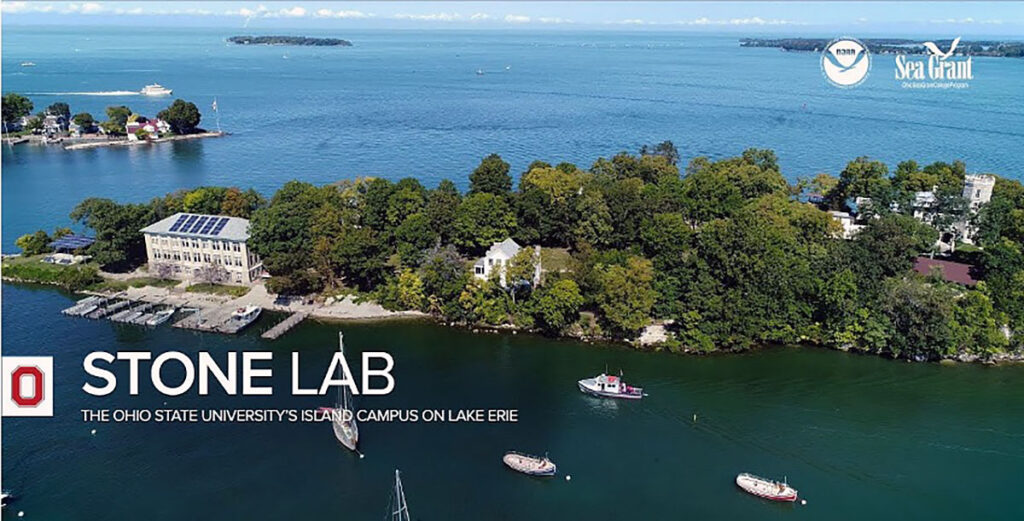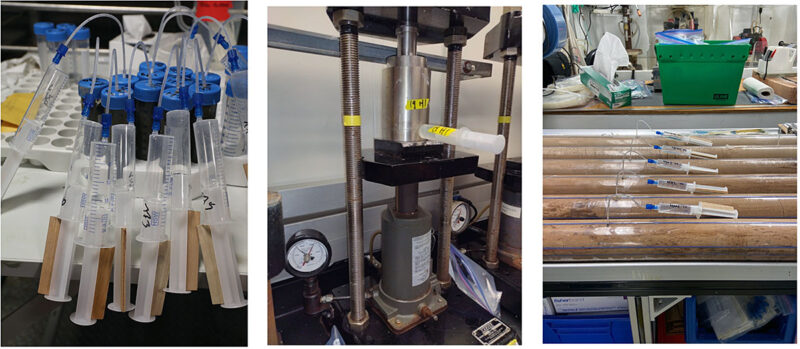Workshop – Future Directions for Scientific Ocean Drilling Interstitial Water Research

Date: September 3 – 6, 2024
Location: Franz Theodore Stone Laboratory, Ohio
Workshop Organizers: Allie Tessin (Kent State University), Natascha Riedinger (Oklahoma State University), Danielle Santiago Ramos (Rutgers University), Evan Solomon (University of Washington)
Deadline to apply for travel support: May 25, 2024. Invitations to participate will be sent by late June. Applications will be used to guide participant selection.

This workshop will bring together scientists who specialize in interstitial water geochemistry, as well as scientists who use interstitial water data and/or are interested in producing or using this data in the future.
Interstitial water analyses are a crucial aspect of current Integrated Ocean Drilling Program (IODP) activities and within the Science Framework 2050, which outlines scientific ocean drilling priorities in a post-IODP world. With the end of IODP and the recent decision to end support for the US drilling vessel, the JOIDES Resolution, the future landscape of scientific ocean drilling is especially uncertain. For scientists who study interstitial (or pore) waters, opportunities for research using legacy materials are more complicated than for some other specialists. While many researchers can make use of archived core materials, new geochemical analyses on interstitial waters require fresh samples and archived material is rarely useful. Additionally, while significant amounts of legacy data exist, their usage for data synthesis work is complicated. Shipboard interstitial water data quality and methodology varies significantly, requiring significant efforts to determine which data can be included and how. Additionally, compilation of this data in a meaningful way is complex, as interstitial water interpretation is often based on trends rather than discrete measurements. Potential ways to efficiently compile downcore records for multiple analytes across numerous sites and expeditions must be determined. This community workshop will provide opportunities to discuss these issues and plan for the future of interstitial water geochemistry.
- Bring the community of marine geochemists together to learn about the latest interstitial water research and methods
- Develop ideas for synthesis papers that address specific questions or environments/processes
- Determine gaps in datasets/knowledge
- Identify opportunities for interstitial water geochemistry within a future drilling program and strategies for collecting interstitial waters from subseafloor samples in the interim
- Provide opportunities for collaboration and sample/data sharing
- Discuss communication and curriculum development opportunities to share our research more effectively
Participation: This workshop will fund travel and accommodations at the Stone Laboratory on Lake Erie for 25-30 scientists to discuss the future of our field and how to maintain enthusiasm and expertise over the coming decades.
The application form can be found here. The deadline to apply will be May 25, 2024, and invitations to participate will be sent by late June. Applications will be used to guide participant selection.






